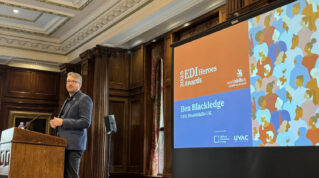I recently underwent a neurodiversity assessment. Finally, at the age of 56, I have a formal diagnosis of neurodiversity and dyslexia. Finally, I fully understand the challenges I’ve always had. I no longer feel like I’m rubbish at certain things; instead, I employ strategies to counteract the challenges I face, and I know what support to ask for from friends, family and colleagues.
Those challenges are simple but disruptive. Because my short-term working memory is poor, I often forget to do things colleagues have asked me to do unless I write them down. My spelling is not what it should be. And I sometimes find myself stumbling through answers while desperately trying to remember what the question was. In short, my brain functions in an atypical way.
Yours might too. Across the nine domains they measure, Cognassist (who assessed me) estimate that less than 10 per cent of people sit in the ‘average’ cognitive profile range. This suggests that places of work and learning that aren’t assessing for neurodiversity are potentially letting many people down and missing out on many talents.
I loved school and I thrived in many ways – but none of them academic. I had detentions on a weekly basis for my spelling, and I left without an O level to my name. In reality, I was being punished for something I never stood a chance of excelling at. I just got used to people thinking I wouldn’t amount to much.
Of course, neurodiversity and its associated conditions such as dyslexia, autism, ADHD, and dyspraxia weren’t really recognised back then. We’ve come a long way since. Some brilliant work is happening across education, but there’s still so much more we could do.
When I left school at 16, I went to college. It was transformative. Finally, I was given the chance to learn in a different way – a heavily practical way that really suited me. I started to thrive and people started to believe in me.
Think of all the talented, neurodiverse learners that would bubble to the surface
A pivotal moment came for me a few years later, when one of my tutors suggested I should teach. It was the first time that I’d felt I had something to offer an education setting. Another year later, I became the youngest lecturer ever to have worked at Walsall College. My career since has spanned 35 years in further education, and I have taken my own education to masters level.
I was lucky. I found my way. But the fact remains that I was needlessly pushed to the bottom of the academic pile for years. I always had the ability to learn; I just needed the freedom to do it in a different way. How many talented people have fallen by the wayside because they never found their niche in education?
As chief executive of the Skills and Education Group, I am on a mission to ensure education policies and assessment practice become neuro-inclusive. Any policy or practice that is solely built around the assumption that we all learn in the same way is outdated.
We need to much better educate our teachers about neurodiverse conditions. Pupils can’t thrive on empathy alone; they need teachers who understand what their diagnosis means, the hidden challenges they present and the initiatives they can deploy to help them. We need to identify these conditions earlier, and we must be ready to support learners with them with every step of their journey.
And we need government policy that supports neurodiversity in delivery and assessment as a mainstream issue. Further education has traditionally provided a much more accessible curriculum for many by default. We can’t put this at risk through qualification reform when we should be codifying that inclusiveness and driving it to greater heights.
Colleges are precisely the kind of inclusive environments our whole education system should be learning from, but the sector can’t stop pushing forward. The collaborative networks of neurotypical and neurodiverse students they create are surely leading to a more understanding and accepting society.
Think of all the talented, neurodiverse learners that would bubble to the surface if that was the educational norm.

















Your thoughts